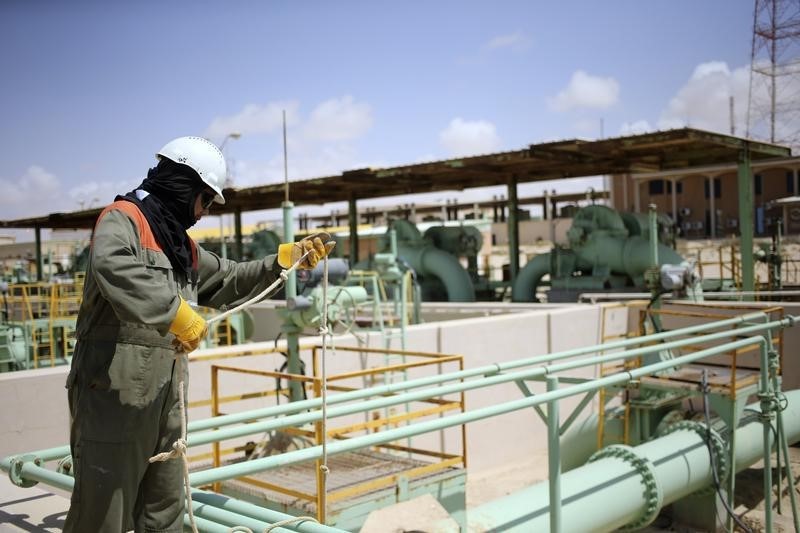Investing.com — Oil prices edged higher Friday, on course to end the week with small gains as concerns over slowing U.S. economic growth were balanced by the potential the U.S. administration starts to refill its strategic reserves.
By 09:40 ET (13:40 GMT), futures traded 0.8% higher at $71.44 a barrel, while the contract rose 0.8% to $75.54 a barrel.
Both benchmarks are trading marginally higher on a weekly basis, potentially breaking a run of three consecutive weeks of declines as traders fretted about renewed economic concerns in the United States and China, the two largest consumers of crude in the world.
Data released Thursday showed that the number of Americans filing for unemployment benefits jumped to a 1-1/2-year high last week, suggesting that the series of aggressive interest rate hikes by the Federal Reserve were slowing the country’s economic growth.
Additionally, the latest signs from China, the largest importer of crude in the world, pointed to its economic recovery from the ravages of COVID taking much longer than had been originally expected.
That said, the crude market has received a boost on speculation that the U.S. may start refilling the Strategic Petroleum Reserves shortly.
U.S. Energy Secretary Jennifer Granholm told lawmakers earlier this week that the Biden administration hopes to start refilling reserves from a four-decade low after a congressionally-mandated drawdown ends next month.
“Originally the US administration had said that it would look to start refilling the SPR if WTI traded down to the US$67-72/bbl area. The market has traded down to these levels this year, but we have seen no signs of refilling,” said analysts at ING, in a note.
There are also concerns that even with doubts about demand growth later in the year, supply will struggle to keep pace.
Iraq said it’s resuming oil exports through the port of Ceyhan in Turkey on Saturday, although approaching 450 million barrels a day still remains away from the global market.
Additionally, markets will need to keep an eye on wildfires in Canada.
“There are concerns that rising temperatures over the weekend could increase the risk of wildfires in Northern Alberta, which could affect output in the oil sands,” added ING.
Data from about the number of U.S. oil rigs in operation and conclude the week, as usual.
Read the full article here
